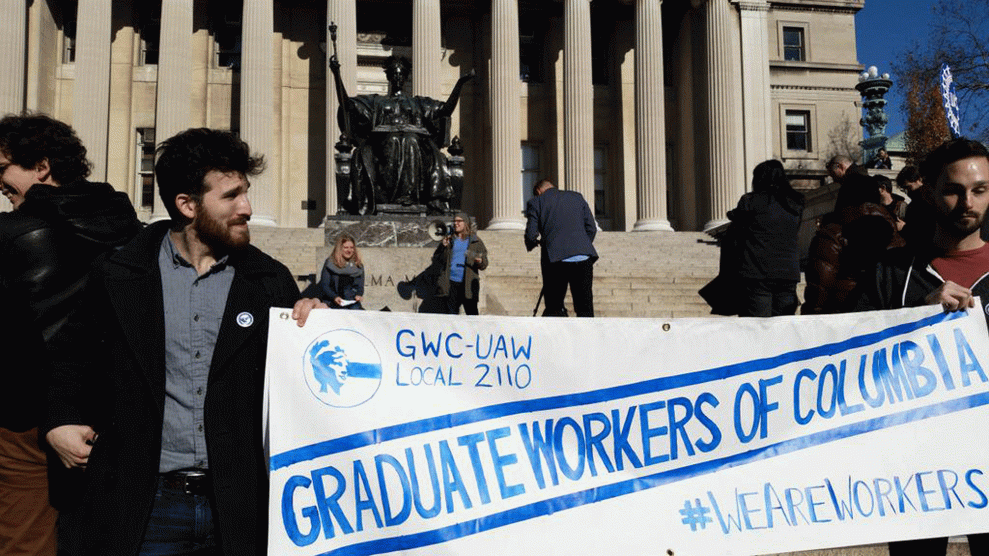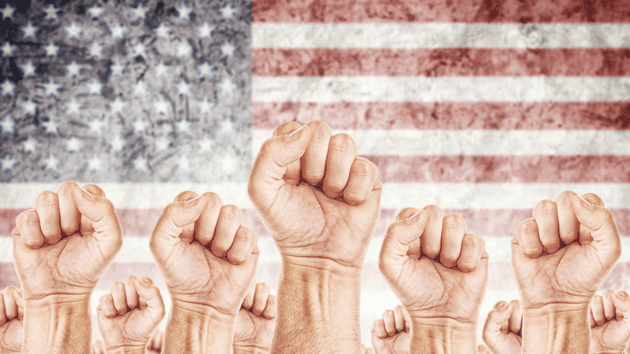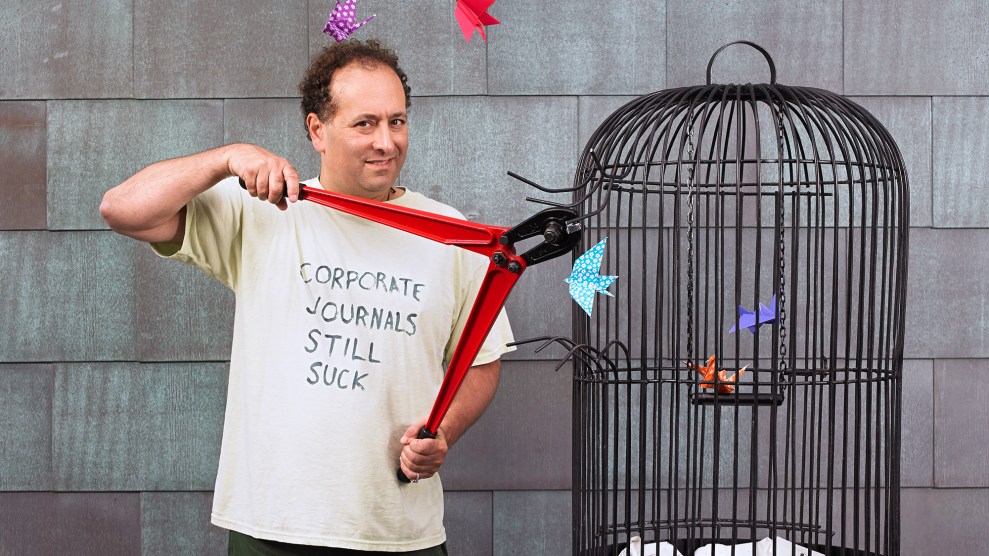
<a href="https://twitter.com/GWCUAW/media">GWC-UAW</a>/Twitter
Reversing a landmark ruling from the George W. Bush era, the National Labor Relations Board ruled today that graduate students who work as teaching and research assistants at private universities have the right to form labor unions.
“This is a historic moment,” said Julie Kushner, director of the northeast chapter of the United Auto Workers, which challenged the Bush-era NLRB ruling on behalf of graduate student workers at Columbia University. “There are tens of thousands of workers at private universities across the United States that will reap the benefits of unionization.”
In 2004, the NLRB barred grad students at Brown University from engaging in collective bargaining, contending that their status as students constrained their right to unionize. Yet in a 3-1 vote along partisan lines today, the Democratic-controlled NLRB reversed the prior board’s decision, arguing that graduate workers can be students and workers at the same time. The students’ right to organize “is not foreclosed by the existence of some other, additional relationship,” the decision says.
Columbia grad students cheered the decision. “When I am working on my own research I clearly am a student,” said Paul Katz, a fourth-year Ph.D. student in Latin American history, “but when I am at the front of the room teaching 15 students about, say, the history of ancient Greece, there is no doubt in my mind that I am a worker, doing work that makes Columbia University great.”
Columbia University released a statement objecting to the ruling. “Columbia—along with many of our peer institutions—disagrees with this outcome because we believe the academic relationship students have with faculty members and departments as part of their studies is not the same as between employer and employee,” the statement said. “First and foremost, students serving as research or teaching assistants come to Columbia to gain knowledge and expertise, and we believe there are legitimate concerns about the impact of involving a non-academic third-party in this scholarly training.”
Columbia and other Ivy League universities have long argued that granting collective bargaining rights to graduate students could impinge on academic freedom by, for example, allowing unions to negotiate over whether tests should consist of multiple-choice questions or essays. But the American Association of University Professors disagreed, telling the NLRB that giving unionization rights to grad workers would actually improve academic freedom by making it legally protected in labor contracts.
Today’s decision applies only to private universities. Grad students at public universities are already considered employees by many states. The United Auto Workers, for example, represents student workers at the University of Massachusetts, the University of Washington, the University of California, and California State University. It also represents grad workers at New York University, which is private but in 2002 voluntarily recognized a UAW union.
Columbia graduate students point to NYU as evidence that collective bargaining makes a difference. The NYU contract eliminated health care premiums and increased graduate student stipends from $12,500 to $22,000 a year—still a pittance, given the cost of living in New York and the amount of time many grad students spend teaching classes and grading papers.
The Columbia students also aim to push for a grievance procedure for sexual harassment and more certainty about pay and benefits. Similar unionization efforts are underway at Harvard and New York’s New School.
“I don’t think anybody expects unions to figure out what grade a student gets in a class,” says Eric Foner, a Columbia history professor who supports the union efforts, “but when it comes to stipends or health care or housing, it is clear that those are labor issues.”
















